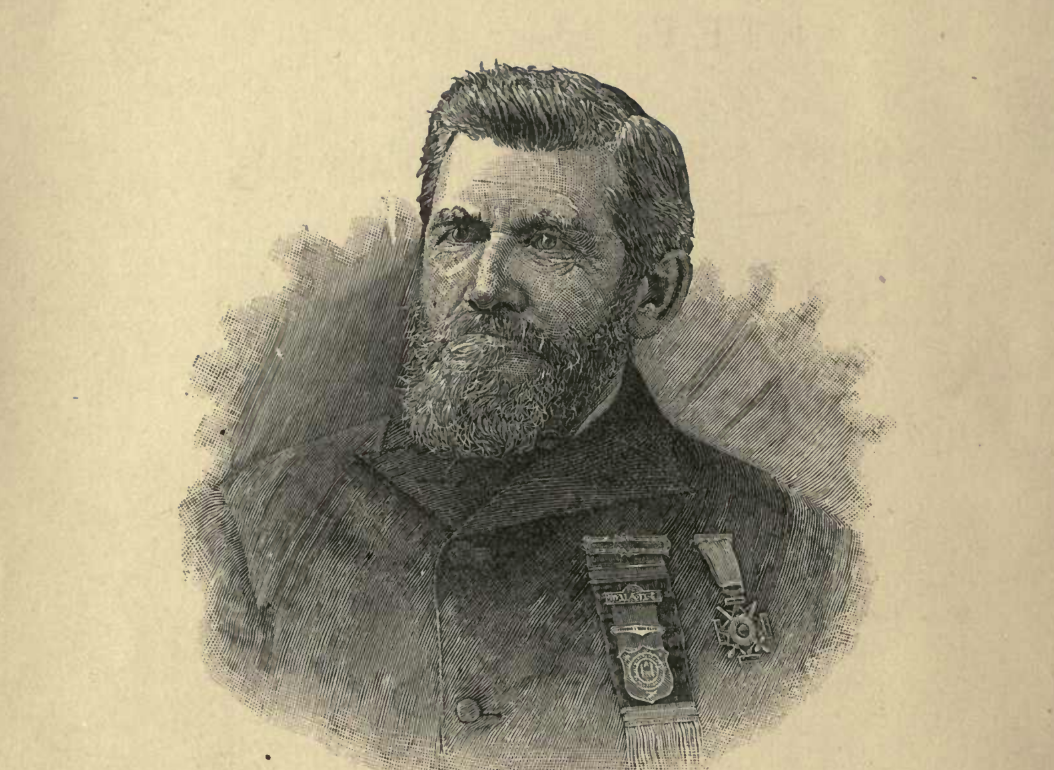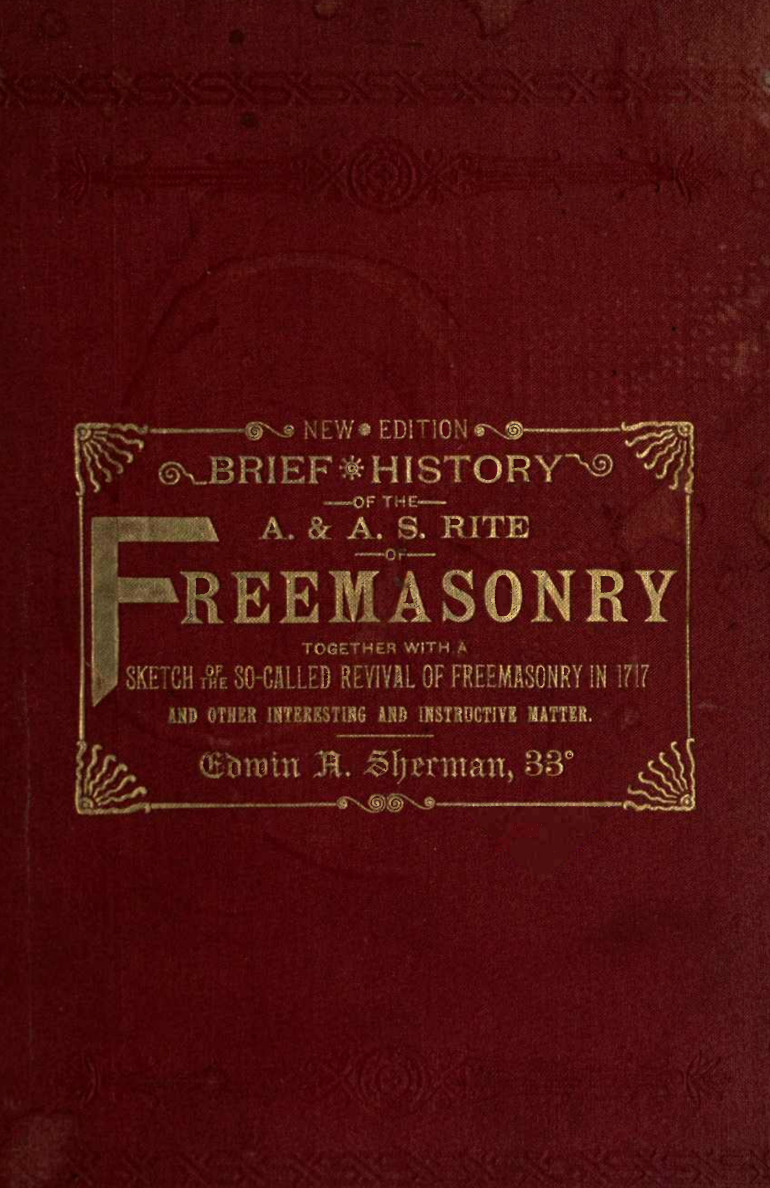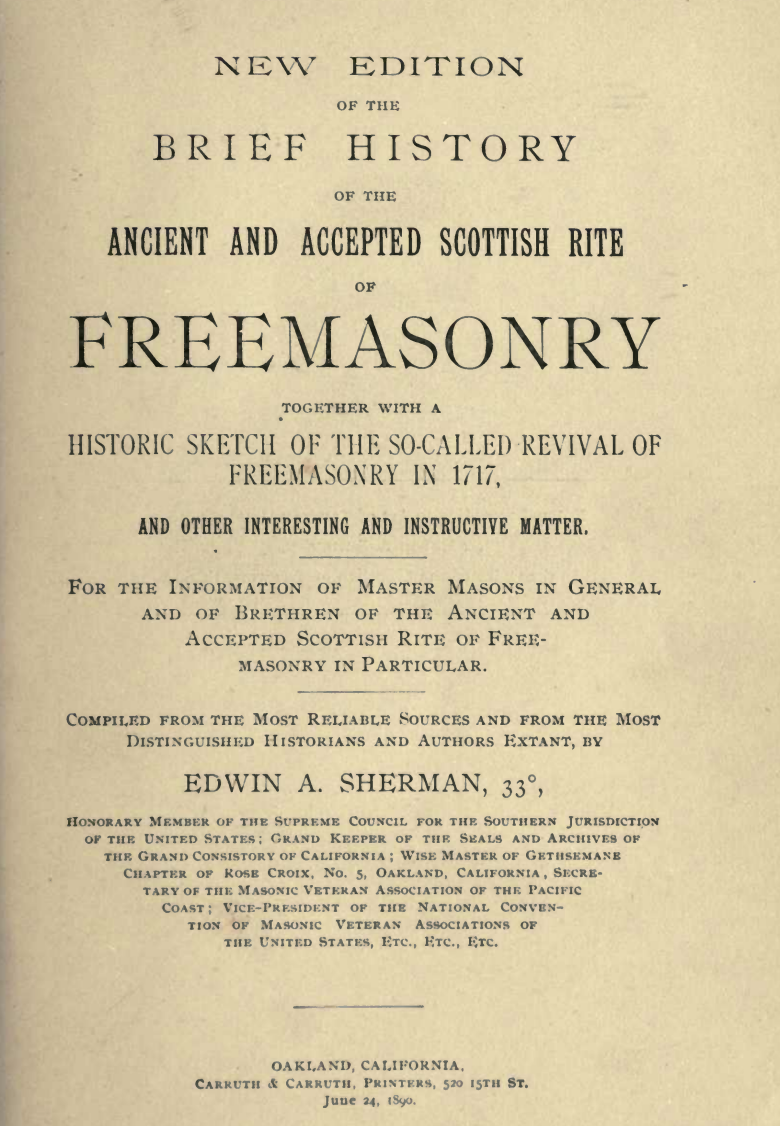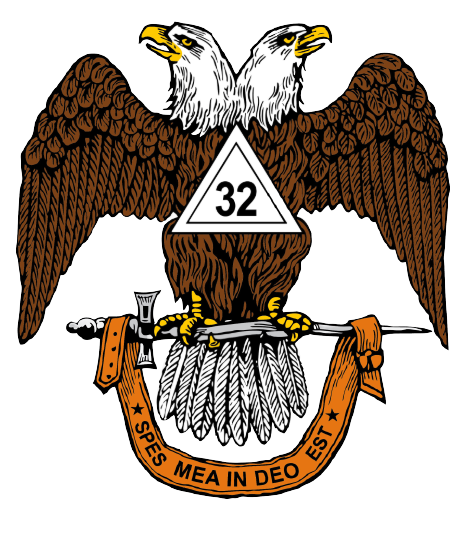Echoes from the Scottish Rite Library - Sherman

"A Brief History of the Ancient and Accepted Scottish Rite of Freemasonry" by Edwin A. Sherman, published in 1890.
In Today's newsletter, we delve into the depths of an old, lesser-known book on the Scottish Rite, titled "A Brief History of the Ancient and Accepted Scottish Rite of Freemasonry" by Edwin A. Sherman, published in 1890. This exploration aims to illuminate the wisdom of our Masonic forebears and inspire us to apply their teachings in our modern world.
Sherman's book provides a comprehensive history of the Ancient and Accepted Scottish Rite of Freemasonry, tracing its roots from the Operative Freemasons of the seventeenth century to its flourishing in America. The book is a testament to the enduring principles of Freemasonry and the impact of these principles on society.
Three main ideas emerge from the text:
- The Pursuit of Truth and Knowledge: Sherman emphasizes the Masonic tradition of seeking truth and knowledge. The Operative Freemasons of the seventeenth century were not just builders in stone but also seekers of wisdom, delving into histories, myths, and legends to understand the world and their place in it (Pgs 26,27).
- The Principle of Equality: The book underscores the Masonic principle of equality, highlighting the contrast between European and American Freemasonry. In Europe, Freemasonry was graded according to civic rank and degree of aristocracy. In contrast, American Freemasonry stands on the broad level of equality and common citizenship, embodying the democratic principles of the nation (Pg 12).
- The Role of Freemasonry in Society: Sherman discusses the role of Freemasonry in society, particularly its influence on the development of civil and religious liberty. He argues that Freemasonry's principles have spread across the globe, influencing societies and contributing to the progress of humanity (Pg 56).
Published in the late 19th century, the book reflects the societal and Masonic contexts of the time. The American Freemasonry that Sherman describes was a product of a democratic society, where the principles of equality, liberty, and fraternity were not just theoretical but practiced. This context significantly influenced the development and practice of Freemasonry in America.
Today, the teachings of this book remain relevant. The pursuit of truth and knowledge is as crucial now as it was in the past. In an era of misdirection and rapid technological change, the Masonic tradition of seeking wisdom provides a guiding light.
The principle of equality, too, continues to be a cornerstone of Freemasonry and society at large. As Freemasons, we are reminded to uphold this principle in our lodges and our lives, promoting justice in our communities.
Finally, the role of Freemasonry in society is a call to action for all Freemasons. As we strive to live by our principles, we contribute to the betterment of our society. Whether it's through charitable works, promoting education, or fostering community, our actions can help improve the quality of life for our nation and exercise the virtues of the Masonic fraternity.
In conclusion, "A Brief History of the Ancient and Accepted Scottish Rite of Freemasonry" is a treasure trove of Masonic wisdom. It serves as a reminder of our rich history, the enduring principles of our fraternity, and the impact we can make in the world. As we continue our Masonic journey, let us take inspiration from this book and strive to live by the principles it espouses.


